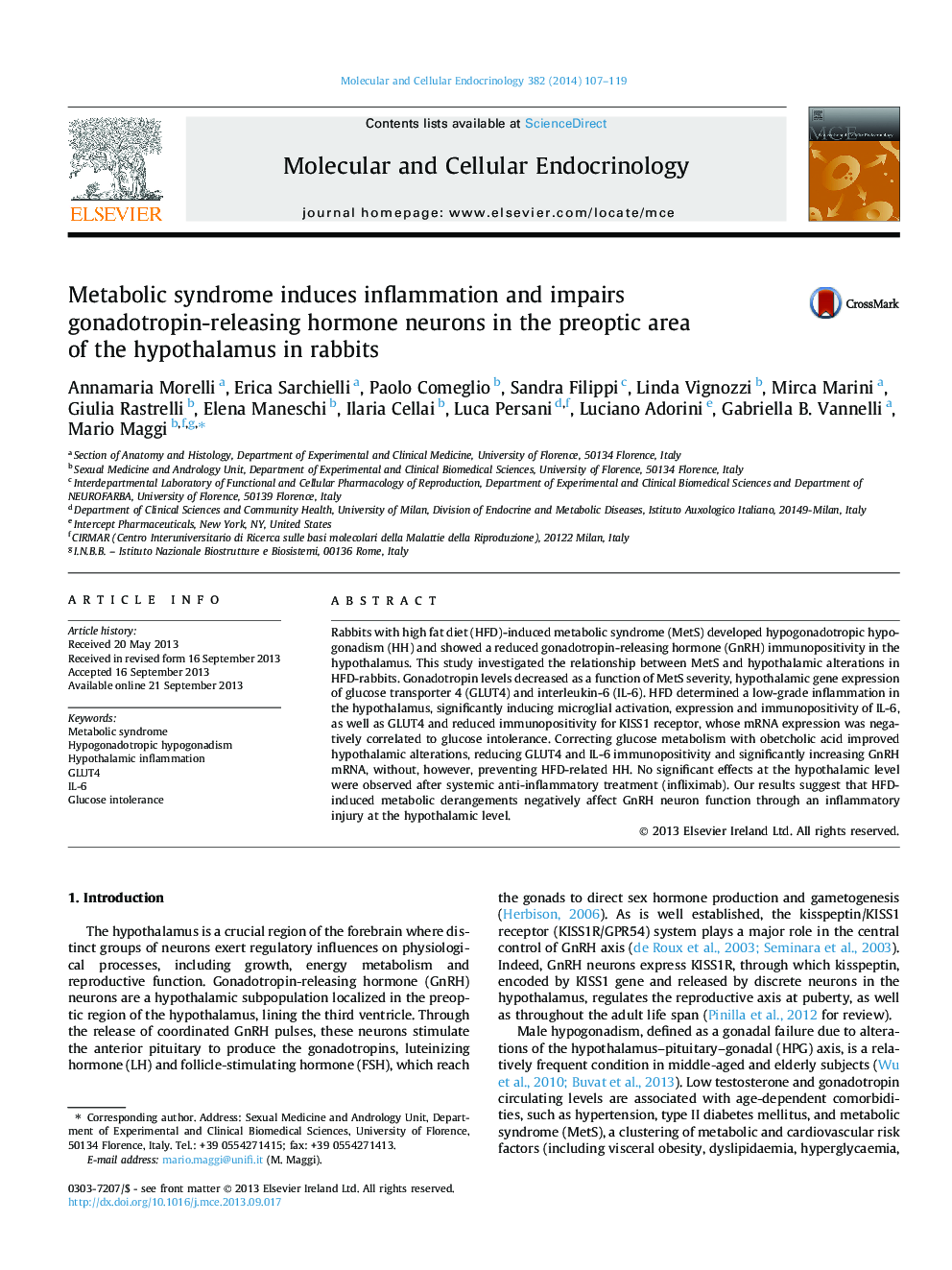| Article ID | Journal | Published Year | Pages | File Type |
|---|---|---|---|---|
| 10956112 | Molecular and Cellular Endocrinology | 2014 | 13 Pages |
Abstract
Rabbits with high fat diet (HFD)-induced metabolic syndrome (MetS) developed hypogonadotropic hypogonadism (HH) and showed a reduced gonadotropin-releasing hormone (GnRH) immunopositivity in the hypothalamus. This study investigated the relationship between MetS and hypothalamic alterations in HFD-rabbits. Gonadotropin levels decreased as a function of MetS severity, hypothalamic gene expression of glucose transporter 4 (GLUT4) and interleukin-6 (IL-6). HFD determined a low-grade inflammation in the hypothalamus, significantly inducing microglial activation, expression and immunopositivity of IL-6, as well as GLUT4 and reduced immunopositivity for KISS1 receptor, whose mRNA expression was negatively correlated to glucose intolerance. Correcting glucose metabolism with obetcholic acid improved hypothalamic alterations, reducing GLUT4 and IL-6 immunopositivity and significantly increasing GnRH mRNA, without, however, preventing HFD-related HH. No significant effects at the hypothalamic level were observed after systemic anti-inflammatory treatment (infliximab). Our results suggest that HFD-induced metabolic derangements negatively affect GnRH neuron function through an inflammatory injury at the hypothalamic level.
Keywords
Related Topics
Life Sciences
Biochemistry, Genetics and Molecular Biology
Cell Biology
Authors
Annamaria Morelli, Erica Sarchielli, Paolo Comeglio, Sandra Filippi, Linda Vignozzi, Mirca Marini, Giulia Rastrelli, Elena Maneschi, Ilaria Cellai, Luca Persani, Luciano Adorini, Gabriella B. Vannelli, Mario Maggi,
